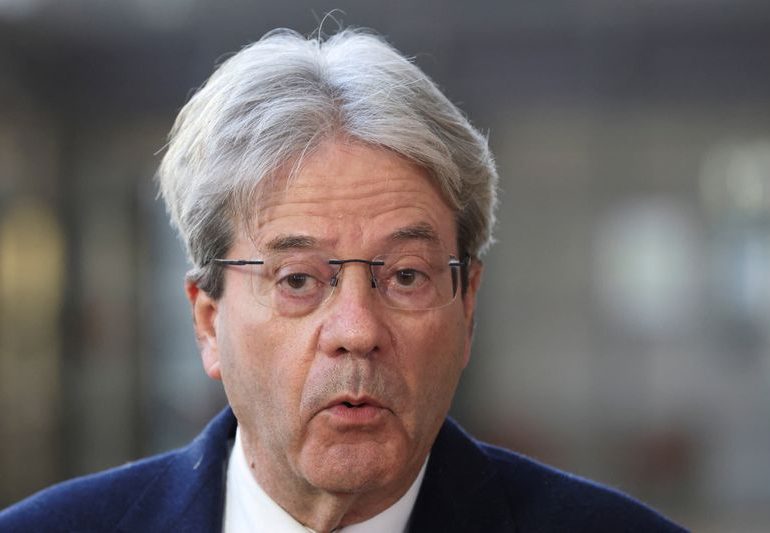Russia’s invasion of Ukraine will slow European economic growth this year through higher energy prices and lower business confidence and to some extent trade, but the European Union is ready for it, top EU finance officials said on Friday.
“We know there will be economic costs. These costs will emerge over the coming weeks and months,” the chairman of euro zone finance ministers Paschal Donohoe said, adding that finance ministers will review fiscal plans in coming weeks to make sure they can support the economy if necessary.
“The impact will be different for different member states,” he told a news conference after a meeting of euro zone finance ministers and central bank governors.
EU leaders agreed on Thursday to impose new sanctions on Russia’s financial, energy and transport sectors, introduce export controls, and blacklist more Russians after Moscow launched an invasion of Ukraine.
This means countries that sell their products to Russia will see trade revenues fall. Russia, Europe’s main energy supplier, could retaliate by curbing gas, oil and coal sales to the EU, though this would be costly for Moscow.
But European Central Bank head Christine Lagarde said the main impact of the war in Ukraine was likely to come through higher energy prices and the uncertainty that will hit business confidence and consumption.
“What we know is that the two main channels through which the euro area economy will be affected will be through energy, prices and through confidence or the uncertainty channel; not so much through trade, which is limited between Russia and the euro area,” she said. “Persistent uncertainty will probably be a drag on consumption and investment, and will impede growth.”
European Commission Vice President Valdis Dombrovskis said the Commission was assessing the potential impact of the war in Ukraine on the EU economy, but noted that the situation was constantly changing.
“A preliminary assessment we did shows that the crisis will weigh on EU growth, but will not stop EU growth,” he said.
The ECB’s chief economist, Philip Lane, has told fellow policymakers the Ukraine conflict may reduce the euro zone’s GDP by 0.3%-0.4% this year.
‘WE ARE PREPARED’
The European Commission forecast this month that economic growth in the 19 countries sharing the euro would be 4.0% this year, already below the 4.3% expected last November, because of more COVID-19 infections, supply chain bottlenecks and record inflation caused by energy prices.
The Commission has said the Russian invasion of Ukraine makes the 4.0% growth forecast more uncertain.
But EU governments said they were ready to bear the cost.
“There are of course consequences in the energy sectors for example, but we are prepared,” German Finance Minister Christian Lindner said. His French counterpart Bruno Le Maire said the sanctions would be painful mainly for Russia.
“It will be the Russian economy that will pay the price for the decision of Vladimir Putin. It will be the Russian oligarchs that will pay for the foolish decisions of Vladimir Putin,” he told reporters.
The EU is drafting plans to cut its reliance on Russian gas.
“We are proposing common European procurement of natural gas, setting up strategic reserves of gas so that we reduce our dependence on Russian supplies,” Dombrovskis said.
“We are talking with other suppliers this week. The prime minister of Norway was in Brussels this week. Certainly we need to strengthen our resilience against Russia’s possible market manipulation.”
Leave a comment

